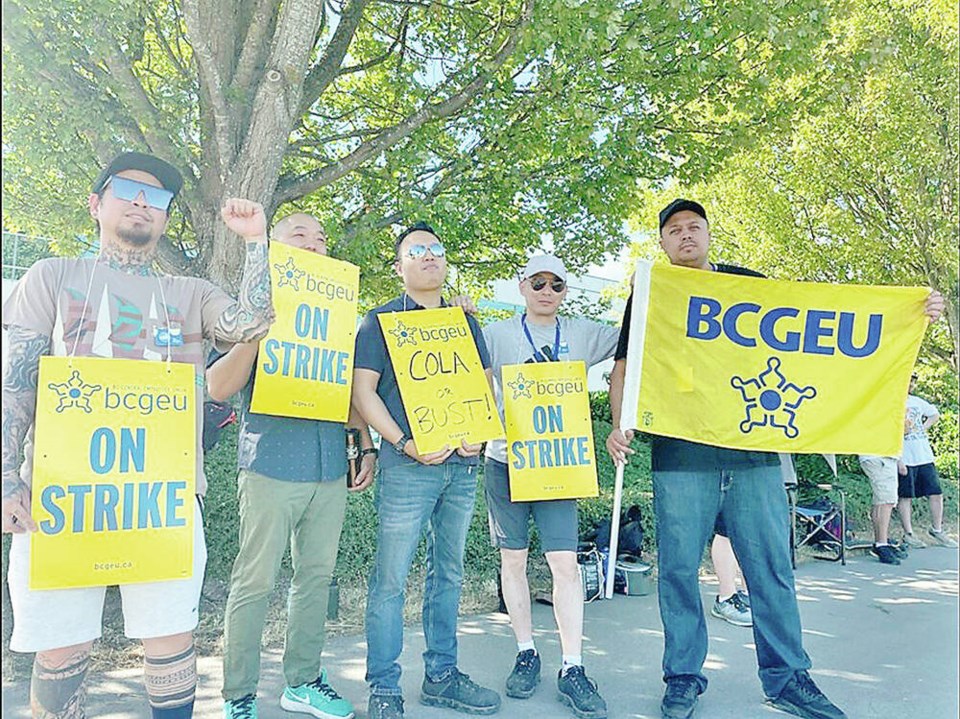Most Canadians believe the pandemic’s impact is in the rear-view mirror. But it isn’t yet for a great many small businesses forced to shutter their premises due to “safety concerns,” even as their regular customers packed into COVID-spreading lines to enter big-box stores deemed “essential services.”
Behind those small businesses are people who have invested personal savings and long hours to achieve their dreams. The Canadian Federation of Independent Business reports that small-business insolvencies were up 34 per cent in the first quarter of this year, the biggest increase in more than 30 years. Many others are just barely hanging on.
CFIB president Dan Kelly fears the wave of defaults will rise as higher interest rates on debt taken on to survive the pandemic become “the straw that breaks the camel’s back.”
Meanwhile, during COVID, public-sector workers kept their jobs, added two years’ credit to their gilded pension benefits and even, many of them, received wage increases.
Statistics Canada’s January 2022 Labour Force Survey found that all of the country’s 206,000 job losers were private-sector employees. Public-sector employment was 305,000 higher than at the beginning of the pandemic in 2020.
Not only did public-sector workers have job security during the pandemic, but they also enjoyed vastly better pension and other benefits.
A Fraser Institute report published at the beginning of the pandemic found that average federal, provincial and local government workers’ wages were more than nine per cent higher than those of their counterparts in the private sector.
Moreover, 88 per cent of government workers were covered by a pension plan, compared with fewer than 23 per cent of private-sector workers.
But now it seems the enormous compensation and job-security advantages enjoyed by public sector employees aren’t enough. The 120,000-member Public Service Alliance of Canada, largest of 17 federal unions, is talking strike, seeking a 13.5 per cent increase over three years.
PSAC president Chris Aylward says: “The government can’t expect workers who have been getting us through the pandemic to shoulder the costs of Canada’s recovery.”
Shoulder the costs of Canada’s recovery? How do you suppose that sounds to all those much lower-paid private-sector workers, many of whom either lost their jobs or were forced to work part-time?
The union members who’ve actually been “getting us through the pandemic” aren’t Aylward’s, but hospital, care-home and public-health workers, many of whom are represented by other unions. Their valiant efforts took both a physical and mental toll and they deserve both financial consideration and our gratitude.
The B.C. General Employees’ Union, largest in the province, went on strike demanding a raise of five per cent wage in each of the next three years or inflation adjustments, whichever is higher. The union broke off talks after receiving what BCGEU president Stephanie Smith disparagingly described as an “insulting” offer.
One of the first job actions taken by the BCGEU was aimed at distribution centres for government-run liquor stores, forcing the government to impose rationing that severely limited supplies to restaurants and bars during the peak summer season.
A spokesman for the B.C. Restaurant and Food Services Association said the restriction “could not have come at a worse time for our industry that hasn’t recovered from the impact of the pandemic.”
More strikes are sure to come as 400,000 of the province’s workers have contracts that expire this year. Work stoppages will inflict mortal damage on many financially fragile small businesses, adding to the already record number of insolvencies.
And that’s just British Columbia. Ontario government data shows 3,197 union contracts expire between now and year’s end, two-thirds of which are for provincial employees.
Government contracts are also expiring in the other eight provinces. Strike-driven contract settlements seem bound to further increase the already huge gap between public and private compensation.
Meanwhile, private-sector workers and their families are left struggling to pay for the rapidly rising cost of food, shelter and just about everything else.
The great irony is that it’s those not-as-well-compensated private-sector workers who generate most of the revenues governments use to pay the much higher wages and gilded benefits of public-sector union members.
This financial disparity is harmful enough to the fabric of our society. What may well be even more damaging is contemptuous union strike behaviour that rubs sand into the financial and emotional wounds felt by other Canadians.
Disparities between public and private compensation and job security are not new in Canada. But the much more difficult financial and emotional toll experienced by private-sector workers over the past two years, combined with the current greed of government unions, has elevated those disparities in dangerous, divisive ways.
Two classes of Canadians have been created: Those without job-security or income worries, and those whose ability to support themselves and their families depends on creating value for the enterprises that employ them.
The worst is yet to come. Bargaining for thousands of expiring government union contracts will hit many more businesses and widen the dangerous gap between those two classes of Canadians.
This is a time when our country needs strong, decisive federal and provincial leaders who will stand up against union demands, including with legislation.
I can’t say I’m optimistic we’ll see that kind of leadership.
>>> To comment on this article, write a letter to the editor: [email protected]



